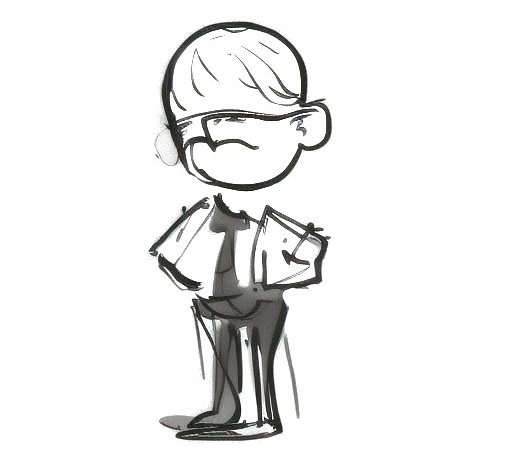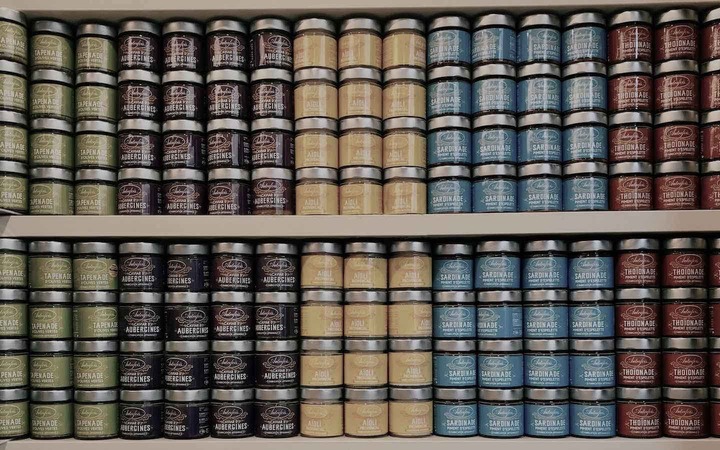The little accountant
Nobody gets everything they want in life. That’s OK. If everyone was a sportscaster-rockstar-scientist-model-author-influencer-billionaire, we still wouldn’t be happy because everyone else would be too busy to be impressed. But still, it’s a little sad when you don’t at least try to get what you want.
My mental model is: Inside my head there’s a guy named Jim. When I decide I want to do something, Jim does a calculation:
How much time and energy will this take, and how much reward will it bring?
If Jim thinks the reward on effort is too low, he puts a “tax” on that activity. It’s still possible to do it, but it requires a lot of willpower. (Something glucose executive function dopamine something ego depletion norepinephrine.) Empirically, I don’t do those things. Jim wins.

So, when I procrastinate, I try to rephrase the problem as: How do I get Jim to lower the tax? This is hard because Jim is stubborn and opinionated and skeptical and illogical.
My taxonomy
Taxum 1: Doing the thing is too unpleasant compared to not doing the thing
You wanted to dig a gigantic hole in the ground, but instead you spent all day eating pie and playing World of Warcraft. Why? Probably a combination of:
-
Digging gigantic holes in the ground is miserable and frustrating.
-
You love pie and dungeon grinding.
Note that it’s the gap that matters. Jim doesn’t object to you doing unpleasant things—he just hates it when you have better alternatives.
Taxum 2: You don’t really believe that doing the thing will work
Jim doesn’t like you wasting time and energy on things that fail.
Sub-taxum A: You don’t think you have the ability. I’ve long wanted to be able to paint. I just want to achieve a mediocre amateur level so I can make Bob Ross jokes, but every time I try, my creations are haunting and Jim howls to stop the insanity. So I don’t paint much.
Sub-taxum B: You don’t think you have a good plan. Sometimes I want to write and it’s impossible. I’ve come to think that’s often because Jim is smarter than me. He recognizes that I haven’t organized my thoughts and I need to do more research or make an outline.
It’s annoying that Jim doesn’t make constructive suggestions. He just tyrannically imposes taxes and refuses to elaborate, which makes these cases hard to recognize. But that’s Jim for you.
Taxum 3: Even if you successfully did the thing, you don’t really think it will matter
Sub-taxum A: You think no one else will care. This reduces the number of essays I write about Utilitarianism by 90%, thank God.
Sub-taxum B: You yourself won’t care. This is familiar to every PhD student who wanted to live a life of the mind and 3 years later finds themselves studying sub-dermal temperature sensitivity in 18th-century Mongolian long beetles.
These are similar but have different solutions. If Jim wants an external reward, then you’re not going to satisfy him by telling yourself that the results will matter to you.
Taxum 4: The timeline is too long
Do you want to be more beautiful? Perhaps the most effective thing you can do is use sunscreen to prevent damage to your skin. But this benefit is far in the future. Jim isn’t impressed by that because he uses aggressive time-discounting.
So that’s my taxonomy. I have no formal evidence for it. But, I claim that if you want to do a thing and
-
you like doing it; and
-
you’re sure it will work; and
-
you’re sure it will be awesome; and
-
you’ll get the benefits quickly;
then it will be easy. So if you’re procrastinating, look for the bottleneck.
Let’s consider the standard tricks
Make doing the thing more pleasant. Say you spend all your time at your desk playing video games instead of working. Will getting a better monitor help? Maybe not, because while that makes working more pleasant, it also improves not working. You’ve got to be careful.
Some solutions are odd. I like a large and completely empty desk. I recognize this is absurd—isn’t the whole point of a desk to support things? But it seems to inspire some sense of possibility and wonder in Jim. (“With all this space for activities, anything is possible!”) And it improves the experience of working much more than it improves my default behavior of watching goat escape videos.
Make not doing the thing more unpleasant (or impossible). You can also attack the “work distractions gap” from the other side. This is exciting because while it’s hard to make things better, pain is unbounded! My favorite techniques include:
-
Physically unplugging my wifi router
-
Leaving my phone in a distant room
-
Put a big calendar on the wall. On days you do the thing, draw a smiley face. On days you fail, write “FAIL”.
-
Standard writing advice is to just puke out a rough draft before you worry about editing. This is impossible for me because Jim does not shut up. By far the best solution I’ve found is an evil writing website where if you stop typing for 5 seconds everything is permanently deleted and Jim shrieks in pain.
Work on the thing with others. Say you want to be a musician and you start a band. This does a lot. It makes writing songs and practicing more fun. It also—via a new social commitment—makes not writing songs and not practicing more painful. And it provides social proof to Jim: when he sees your friends spending their time trying to land a record deal, he concludes it can’t be that stupid.
Break the thing down into a todo list. Lists do two things. First, steadily crossing off a series of steps reinforces that success is possible. Lists also create a small reward with a short timeline, when you cross off each item. Maybe we should lean into this and have little “box-checking festivals” where we play a horn and eat some chocolate. Use your primitive instincts to your advantage.
Do a different thing. So far we’ve tried to outmaneuver Jim. But sometimes he’s right. Maybe you can’t do the thing, or it won’t matter.
A year or so ago, I got obsessed with cancer treatments. I wanted to know: How much do immunotherapy treatments really help? Have they increased average life expectancy? I started digging around and made some graphs like this:
But it was incredibly hard to make myself work on this. Eventually, I realized:
-
It’s almost impossible to tell if survival rates changed because of new treatments, different detection rates, or changes in lifestyles.
-
I have no specialized skills or knowledge to untangle that.
-
Other people do.
So I moved on to other vital topics like the origin of “that’s what she said”.
Even if you decide not to quit, giving yourself that freedom can allow you to think things through and quiet Jim down.
Be honest about your motivations for the thing. We often lie to ourselves. We say we want to get in better shape so we can “be healthier”. But really we want to be hotter so we can date hotter people or impress folks at work. But at the same time, we often don’t actually believe that exercising will accomplish those things.
The problem is, while it’s easy to lie to yourself, Jim isn’t fooled. He knows you’re trying to do something that you don’t think will succeed.
So, be brutal about your motivations. Humans are silly creatures. If you convince yourself that all your goals are noble and beautiful, you’re going to find Jim stomping the brakes in lots of surprising situations. Honesty won’t stop him, but at least you’ll know what’s coming! It can also sometimes help you reorient your true motivations—to find a way to actually run for better health.
Take drugs. Obviously, I don’t recommend this. But some people take dopaminergic drugs like cocaine or amphetamines and then seem to tend to procrastinate less. How does this fit in?
Some speculate that the mechanism of these drugs is to increase your confidence in your predictions, so you’re sure the thing will work and bring you reward. That’s helpful if you have a good plan, but it also clarifies one of the downsides of these drugs: You’re more likely to engage in Jim-disapproved activities like writing a terrible non-Euclidean space opera or starting a fraudulent investment firm that costs thousands of people their life savings.
Why does Jim exist?
There’s also the non-solution: Give up, reduce your ambitions, and stop calling it procrastination. The only thing worse than not doing the thing is not doing the thing and also beating yourself up about it forever. You weren’t designed to overpower Jim all the time, so don’t expect to.
This brings up a deeper question that gets strangely little attention. Namely, why does Jim exist at all? Why don’t we have infinite willpower? There are lots of studies that suggest that people with more willpower have better life outcomes. The causality of these observational studies is debatable, since you can’t assign someone a level of willpower and watch what happens. But let’s just suppose willpower is good. Then why didn’t evolution give us more of it?
-
Maybe lack of willpower is just a “flaw” that for some reason evolution can’t eliminate.
-
Maybe lack of willpower has become a flaw now because we live in late modernity and spend our time staring at tiny numbers instead of hunting and winning glory with our tribal bands.
-
Maybe life is too complicated to manage with conscious thought. You don’t control your heart rate. You don’t orchestrate your visual system—you just “see”. Maybe juggling all your priorities like relationships, food, work, sex, sleep, etc. is also just too hard to be left to consciousness.
-
Maybe evolution knows that “you” (your conscious self) have different priorities than it does. An obvious example would be when you have the urge to have unprotected sex that might lead to an unwanted pregnancy. “You” think that’s bad because a baby would interfere with your brunch plans. But Jim says “yes babies good!” and puts massive subsidies on “have unprotected sex”.
What I’d like to understand is: Is there a failure mode from having too much willpower?
There’s an angle on this that seems promising at first. People who have ADHD have “low willpower”. This is claimed to be a result of some kind of dopamine (or norepinephrine) dysfunction—either producing too little, or having low-sensitivity receptors. So is there a problem associated with having “too much” dopamine? Perhaps yes—the dopamine hypothesis is that an overly sensitive dopamine system (or taking lots of meth) causes schizophrenia.
As a cartoon, we might think that:
LOW DOPAMINE
↓
LOW CONFIDENCE IN PREDICTIONS
↓
FORGET HOMEWORK PLAY VIDEO GAMES
And:
HIGH DOPAMINE
↓
EXTREME CONFIDENCE IN PREDICTIONS
↓
HALLUCINATIONS
Nice theory, right? Trouble is, people with ADHD are also much more likely to develop schizophrenia. So this doesn’t make sense, nothing makes sense.
































